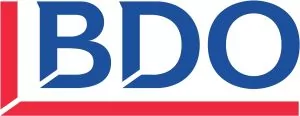With an intent to simplify taxation regime in case of individual taxpayers and Hindu Undivided Family (HUF), Finance Act, 2020 has introduced Section 115BAC in the Income Tax Act, 1961 (IT Act). Section 115BAC of the IT Act provides for reduced tax rate and takes away all the deductions and exemptions. However, the provision of this section is not mandatory. In other words, an option has been given to the individual taxpayer or HUF to either opt for this new concessional tax regime or to continue to be governed by the old tax regime. While this section was introduced from an individual taxpayer's or HUF's perspective, corresponding amendments were not made in the tax withholding provisions (i.e. Part III of First Schedule of Finance Act, 2020) from deductor/ employer's perspective in case of such individual taxpayers who would opt to be governed by these new concessional tax regime. Hence, even though a new concessional tax regime was introduced, for tax withholding purpose, it appeared that the deductor/ employer cannot consider this new concessional tax regime. Furthermore, as an employer, it would be difficult to know whether the individual employee would be opting for the new concessional tax regime or not. Hence, various representations were made before the Central Board of Direct Taxes (CBDT) seeking clarity on the new concessional tax regime from tax withholding perspective. Pursuant to such representation, recently, CBDT has issued a clarificatory Circular1. We at BDO in India have analysed and summarised this Circular hereunder:
Employee having income other than the income under the head 'Profits and Gains from Business or Profession' and intending to opt for new concessional tax regime
- Employee to intimate the employer of his/ her intention to opt for new concessional tax regime for each fiscal year
- Upon such intimation, employer to consider the new concessional tax regime for computing the estimated tax liability and withholding of taxes.
- Where no intimation is made by the employee, tax to be withheld under the old tax regime by the employer.
- Intimation once made, cannot be modified during the concerned fiscal year.
- Such intimation shall be limited from tax withholding perspective only. Accordingly, employee (at the time of filing their tax return) may choose not to opt for such concessional tax regime despite of making such intimation to the employer.
- Intimation to employer does not amount to exercising option and such an employee needs to exercise his / her option (to be governed by the provision of Section 115BAC of the IT Act) at the time of filing return of income.
Employees having income under the head 'Profit and Gains from Business or Profession' and intending to opt for the new concessional tax regime
- Taxpayer who has income from business or profession, can opt for new concessional tax regime by intimating his / her employer
- Upon such intimation, employer to consider new concessional tax regime for computing the estimated tax liability and withholding of taxes.
- Where no intimation is made by the employee, tax to be withheld under the old tax regime by the employer.
- The provisions of section 115BAC of the IT Act provides that option once exercised for the concerned fiscal year at the time of filing his / her return of income under section 139(1) of the IT Act cannot be changed in the subsequent years except in certain specified circumstances. Accordingly, there should not be any deviation in the subsequent years after intimating the employer (to be governed by the new concessional tax regime for a particular fiscal), except in certain specified circumstances.
BDO Comments
The CBDT has come out with the above Circular on a timely basis to provide much needed clarity on the employer's obligation from tax withholding perspective. However, the provisions of Section 192 of the IT Act remain unchanged and therefore there exists anomaly wherein the reference to the new concessional tax regime is not made in the Section 192 of the IT Act which governs tax withholding provision in case of salary payments.
Furthermore, the above Circular casts the additional compliance burden on the employer. Therefore, going forward, every employer will have to classify their employees into different cases, maintain necessary intimation and other documents (as per applicable cases) and withhold appropriate taxes.
Separately, the Circular does not prescribe or provide any format and time limit within which an employee needs to provide the intimation to the employer. Accordingly, clarification on these aspects would bring uniformity and timeliness in undertaking these compliances.
Also, in cases (such as change of employment, etc.) wherein the tax withholding undertaken by the employer would require further clarity and therefore it is recommended that CBDT issues a detailed FAQ addressing these issues.
Footnote
1. Circular C1 of 2020 (F. No. 370142/13/2020-TPL) dated 13 April 2020
Originally published 16 April 2020
The content of this article is intended to provide a general guide to the subject matter. Specialist advice should be sought about your specific circumstances.

